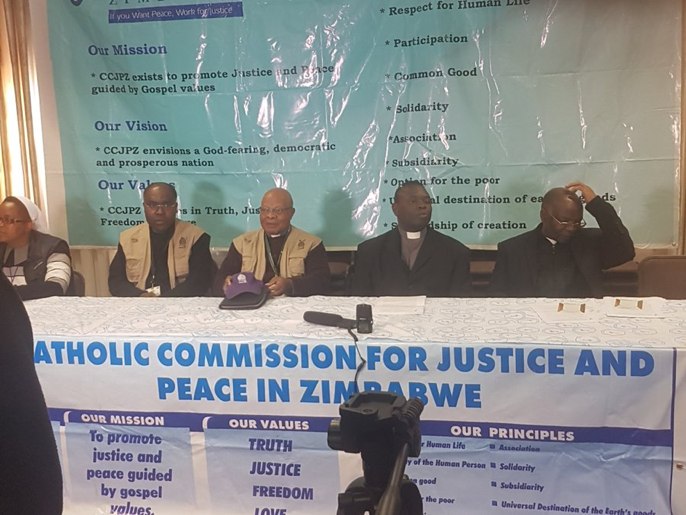A year ago, I was in Zimbabwe as the country of my birth prepared for an election, the first in 38 years without Robert Mugabe’s name on the ballot paper.
It was an exciting time. We hoped for social and economic reform that would give people dignity, for human rights to be respected, for opportunities to be available beyond a narrow, self-perpetuating elite. Yet, within 48 hours of the polls closing, the security forces opened fire on demonstrators in Harare, killing six people and injuring many more.
In my visits to Zimbabwe since, I have seen those hopes ebb away. Nobody has been arrested for the 1 August (2018) shootings, and there has been further violence since, in response to protests against the deteriorating economic situation in January. As we hit the first anniversary of the election on July 30, where does the country stand?
The space that opened for civil society last July, when every tree was festooned with election posters, and the future was debated on every street corner, has largely closed. Opposition leaders and civil society advocates have been arrested, and intolerance is growing. With the exception of former president Robert Mugabe, the same people are still in charge.
There is little sign of economic reforms that put the interests of Zimbabwe’s poorest people first. Women, children, the elderly and people with disabilities remain disadvantaged. The new administration introduced a “transitional stabilisation programme” last October to put the economy on an even keel and stimulate growth, with the aim of making Zimbabwe a middle-income country by 2030, but instead things are slipping backwards.
Inflation has risen to 175 per cent. There are acute shortages of basic items such as medicines and food, and power cuts are increasingly frequent. Fuel prices keep going up, raising the cost of everything else. My siblings, a teacher and a nurse, earn the equivalent of US$30 a month and are finding it impossible to manage.
The government has banned the use of the US dollar and reintroduced the Zimbabwe dollar, but that has led to currency shortages, while the power outages have crippled the use of alternatives such as bank cards and mobile phone wallets. Compounding this, Zimbabwe is feeling the ravages of climate change, with drought and failed harvests followed by Cyclone Idai, meaning that over half of the population will face hunger this year, and the authorities are ill-equipped to respond.
Church leaders put the situation starkly in a recent statement, talking of “ongoing fuel shortages, price hikes, heavy taxation and currency crisis”. They called for urgent attention to the “desperate cries” of struggling Zimbabwean families “as they battle to put food on the table, send children to school, seek healthcare for the ill, make a living in difficult economic conditions and cope with life’s struggles in a context of austerity”.
The response of religious leaders has been to start work on convening a national convention, which will seek to promote reconciliation, good governance and a social and economic contract with broad public support. Thus far public engagement has been conspicuously lacking in the government’s approach.
What role should the international community play? It must hold the government to the commitments it made at the time of last year’s election. It should seek to help the ordinary people of Zimbabwe survive the year with support for food, medicines and the skills and tools to adapt to climate change. And support the efforts of civil society and people on the ground in Zimbabwe to build a just and secure future for all Zimbabweans.
Dadirai Chikwengo is Governance Analyst at the Catholic Agency for Overseas Development - CAFOD



 Loading ...
Loading ...
What do you think?
You can post as a subscriber user ...
User comments (0)